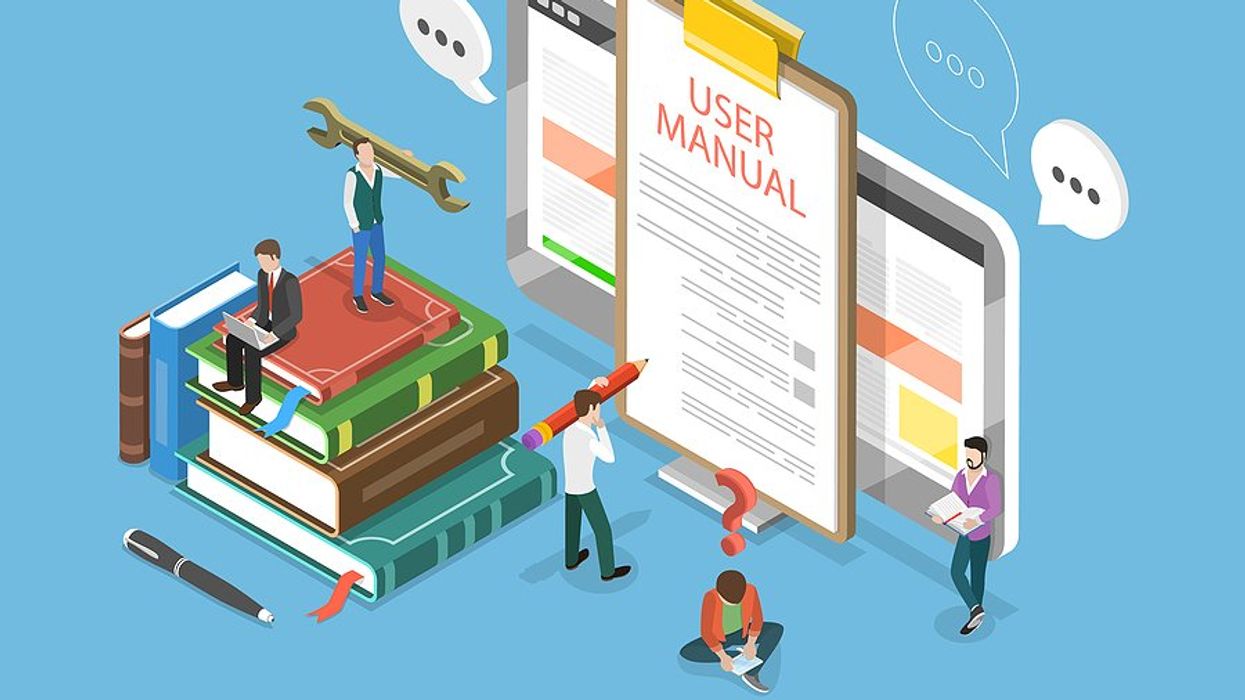If you''re serious about applying for a leadership position, it''s important to do some prep work before the interview. And part of that is running through what your answers will be to common leadership interview questions.

This list will help you develop and practice giving great answers that will blow the interviewer away.
1. What are some skills you think all leaders should have?
It doesn’t matter how many years of experience you have in your industry or what role you’ve played up to this point. You’ve worked under countless leaders in your career. There’s a good chance that you’ve picked up many things along the way while observing those leaders in action.
Interviewers want to know what skills you think a good leader has. This leadership interview question is more than opinion-based. It provides insight into what you believe is most important from these roles.
It gives the hiring manager a look into the type of leader you will be.
The best way to answer this leadership question is to provide detailed examples. Do more than name a list of traits. Tell a story, connect it to your personal experiences, and use this question to highlight what you’ll do if you land the job.
2. Can you share a time when you displayed leadership in the workplace?
Here’s another leadership interview question that provides a look into how you work. Every leader is different, and they approach challenges in unique ways. This is your opportunity to provide a glimpse into the type of leader you will be.
Whether or not you have legitimate leadership experience, you’ve likely been in a situation where you needed to take the reins. Discuss it, draw references from your past work experiences, and be specific. Provide details!
Tell the interviewer how you developed your strategy, what decisions you had to make, and your thought processes to get there. Don’t forget to highlight the success that came with those leadership moments.
3. If someone on your team brings you a new idea, what do you do?
Here’s the thing about being a leader: Yes, you have the final say. However, those in a position of leadership don’t always have the answers. A good leader is someone open to accepting ideas from others. You must be confident but open-minded.
That’s what hiring managers want to know more about with this question. They want to see that you’re not too proud to listen to new ideas. Not every innovation is worth pursuing, but it’s essential to show that you’re open to whatever your team brings you.
When answering, reflect on your leadership experience and find a story demonstrating your openness and willingness to collaborate and listen to new ideas from your team.
4. What is your approach for improving low morale on your team?
Low morale can be a huge productivity killer, and it''s the reason why many projects fail. People need to feel empowered and appreciated to reach their full potential.
Morale issues are common, and they’re a hurdle that many leaders have to overcome. The best leaders use strategies to lift teams. Hiring managers want to know what you do to avoid and address these issues.
When answering this leadership interview question, talk about the steps you would have taken to combat low morale. That could include keeping the lines of communication open, going above and beyond to recognize hard work, and developing a strategy to keep your team as happy and productive as possible.
5. What is the most difficult decision or action you’ve had to take as a leader?
Every leader will come to a crossroads at some point. Tough decisions are unavoidable, and these situations come with the territory. Do you crumble under pressure or stand firm and deal with the problem at hand?
Hiring managers want to know that you take challenging decisions seriously. They want to know your thought processes and ensure you’re ready for these challenging moments.
Reflect on your leadership experience and discuss a situation that fits the bill. Explain what happened, what choices you had to make, and why you went down the road you did. Talk about the repercussions and focus on what you learned in the process.
6. How do you monitor and track the performance of your team members?
A good leader does more than delegate, but tracking performance isn''t about being a micromanager or not having trust in your team. It’s more about taking steps to ensure the best possible outcome for everyone.
This leadership interview question highlights what technologies and processes you use to monitor performance and take action. Talk about the tools you use and how you approach performance tracking. Then, focus on how you go from making simple observations to taking action and helping your team improve.
7. How do you handle the process of delegation?
Good delegation is one of the most important leadership skills. A team that isn''t being utilized efficiently will struggle, so you must assign tasks strategically to get the best out of a unit.
To answer this question, share your understanding of the delegation process and lean heavily into the importance of knowing your team’s capabilities. Let the interviewer know that you don’t delegate at random. Discuss how you assign tasks and your overall philosophy about this process.
It’s also wise to touch on what you do to support people moving forward. How do you provide instructions and ongoing feedback? What do you do if you realize someone isn’t performing best in their delegated role? Those are all details you can bring up to develop a high-impact answer.
8. What are some ways that leaders can positively influence the culture at work?
There’s no universally correct way to answer this leadership interview question. It’s a layered inquiry that you can answer in many ways.
The overarching purpose of your answer should be to show that you’re dedicated to creating a positive and safe environment for employees. Your team should feel confident in their work and supported at every turn. With a positive work culture, everyone can thrive.
There are many ways to create a supportive work culture. You can prioritize open communication, give your team freedom to experiment, offer positive reinforcement, focus on creating work/life balance, and more. Think about strategies you used as a leader and tell the interviewer why you believe they are important. Your answer should include the impact you made on the company''s culture.
9. What traits are ideal for leadership positions?
Traits are what make up a person’s character. It’s how they act and the type of person they are. Don’t make the mistake of thinking this question is about skills. It’s about discussing the characteristics a good leader has.
This leadership interview question is crucial because it tells the hiring manager about the leader you strive to be. Again, there are many ways to develop a response. You can mold your answer around concepts of empathy, compassion, and consideration. Or you can focus more on things like accountability and honesty.
Whatever you answer with, explain why those traits are pivotal. Then, connect them back to you to show you’re ready to tackle this opportunity.
10. Has your leadership style changed at all over the years?
This question will most likely arise when interviewing for a high-level leadership position.
A good leader is someone willing to learn and grow alongside their team. You can go into these positions with a laser-focused idea of what approaches you want to take and who you want to be. But when you’re in the moment and taking responsibility for your team’s success, it’s different.
You learn new things along the way. Talk about those lessons! Think about how you initially led and what’s changed since then.
The point is to show that you’re adaptable and always willing to learn. No company wants to hire someone who’s stuck in their ways. Every team you lead is different, so talk about how you can adapt to their needs to maximize results.
11. Share a time when you’ve led your team by example.
We’ve all heard those horror stories about managers who are inconsistent or contradict themselves. In many cases, those situations fail miserably because the leadership doesn’t take action to lead their teams by example. This leadership interview question is your chance to show that isn''t how you approach work.
In your answer, mention how you can get your hands dirty and help your team succeed. Reflect on past experiences where you did just that or moments when you provided clear examples to set expectations.
12. What’s your approach for dealing with conflict within your team?
Team dynamics can vary dramatically from one day to the next. Some people simply can’t get along. That’s alright, but you should know how to diffuse situations and find ways for these team members to put aside their differences and work towards the bottom line.
Conflicts are bound to happen at some point. Tell the interviewer how you deal with those moments and discuss strategies you use to mitigate issues. You can look up practical techniques like open communication, peer mediation, and more. Also, consider leaning into your empathetic side and eagerness to listen to different perspectives.
13. How do you approach situations where your team doesn’t have the ideal amount of resources to work on a project?
Unfortunately, you may find yourself in situations when your team doesn’t have the resources to complete a project to its full potential. While the goal of a leader is to manage projects and guide their team to success, they don’t always have the final say about resources.
This leadership interview question gives hiring managers a better idea of how they approach these delicate situations. Do you shrug your shoulders and force your team to figure things out independently? Or do you get pitch in, devise creative solutions, and try to address the situation to support your team?
If you’ve experienced these challenges before, discuss them in your answer and provide details. If not, tell the interviewer what you would do if faced with this struggle in the future.
14. If you’re given an entirely new team to lead, how would you get up to speed on their bandwidth and abilities?
It’s one thing to form a team and grow as a unit, but it’s another ballgame to get assigned to lead a group you’ve never met before. You don’t know their capabilities, how they work, or anything else you need to lead the team successfully.
This question aims to see what you would do in a challenging situation that occurs frequently. The leadership position you’re applying for may plop you in the middle of an already-established group. What will you do right off the bat to hit the ground running?
The best approach is typically to start by evaluating the new team. See how the group works individually and what they can do as a unit. Talk about your evaluation approach and provide a detailed plan of how you can fit into a new group and start producing results quickly.
15. What’s your ideal method for evaluating the performance of a new team member?
This question is similar to the previous one. However, it focuses more on the steps you would take to introduce a new individual into a team that’s already comfortable working together. These situations can be awkward, making the transition challenging for everyone involved.
When developing a response, discuss what you would do to help that new team member succeed from day one. Go into detail about how you would evaluate their capabilities, learn about their past roles, what they’re good at, etc. Figuring that information out is crucial for every new addition because it lets you delegate tasks that work with their strengths.
16. How do you handle constructive criticism you receive at work?
The ability to take constructive criticism is essential for any position. However, it’s critical for a leader to know how to accept this sort of feedback.
Constructive criticism can help leaders improve. Whether it’s coming from the team or your higher-ups, you must show that you can handle it all. Find a way to illustrate that you’re fine with this potentially negative feedback. Think of a moment from your past or discuss what you would do in a hypothetical situation.
Either way, mold your answer to show that constructive criticism won’t negatively impact you or your performance.
17. What do you do if a team member is struggling?
It’s not entirely about the collective group. Seasoned leaders will also focus on individuals. As we said earlier, a team is only as good as its weakest link. If one person is struggling, they can take the entire unit down.
With this leadership interview question, interviewers want to know how you handle these situations. How do you look for signs of trouble, and what do you do to address them?
Ideally, your answer will focus on your strategies to help struggling individuals improve. Show that you’re ready to provide one-on-one assistance and take action for the team’s betterment.
18. Would you consider yourself to be a mentor to anyone?
Being a mentor is a lot like being a leader. Mentors guide people under their wing, lead by example, and encourage others to succeed. It’s all the same hallmarks of a good leader.
You may have had many opportunities to mentor others in the past. Whether that’s having a job shadow or teaching a colleague a new skill, those moments can illustrate your commitment to helping others reach their full potential.
19. How would you describe your leadership style?
There are many different types of leadership styles. You can be direct, setting clear expectations and not providing much hands-on support. There’s also coach and support-style leadership, which revolve around concepts of motivation and collaboration. Then there’s delegation-style leading that revolves around entrusting team members to fulfill their responsibilities.
Before going into your interview, research the company and the leadership position you''re applying for. Figure out what types of leadership will work best at the company. When developing your response, talk about your preferred style, provide concrete examples, and express your ability to adapt to the team and situation.
20. Can you give me an example of a leader you look up to?
This leadership interview question is a unique one that provides more insight into who you are. Everyone has leaders they respect, and you’re more likely to exemplify or strive to exhibit the traits of someone you look up.
Choose someone from your past or a public figure you admire. Go into detail about what it is about that person that inspires you.
21. Why should we hire you?
A question like this almost always comes up in leadership interviews. This is an opportunity to sell yourself and lay everything on the line. The best approach when answering is to tell the interviewer precisely what you have to offer and why you’re the perfect fit for the role.
Use the company research you did early to paint a picture. Connect the dots between your past experiences and skills to the requirements of the role. Show the interviewer what you plan to do and make yourself sound as appealing as possible.
22. How do you make sure your team delivers their work on time and within the allotted budget?
Here’s a more practical leadership interview question that demonstrates your capabilities in a real-world setting.
Leaders are responsible for guiding teams to success. They must delegate tasks, manage progress, and ensure everything is completed on time and within budget. There are many moving parts, and a leader’s job is to ensure that teams run like a well-oiled machine.
The best way to answer is to pull from your actual experiences. Talk about projects you’ve successfully led in the past and what you did to ensure that they met expectations to a tee.
23. Did you always want to be in a leadership position, or has that changed over time?
Not everyone starts their career with aspirations of getting into a leadership position. But things can change.
Hiring managers want to know more about your motivations, and this is a great question to unveil them. It encourages you to talk about your career and what pushes you to do better.
When answering, lean into enthusiasm and natural motivation. Tell them why you want this job and why being a leader appeals to you now. Don’t be afraid to tell a compelling story.
Go into detail about the experiences that pushed you to this point and made you want to take on more responsibilities.
Closing Thoughts
Knowing what leadership interview questions you''re most likely to be asked is essential if you want to be as prepared as possible. And now that you know them, all that''s left is to practice!
Run through these, work on your answers, and you''ll leave a great impression on the interviewer.
The post 23 Leadership Interview Questions & Answers To Practice appeared first on Career Sherpa.















